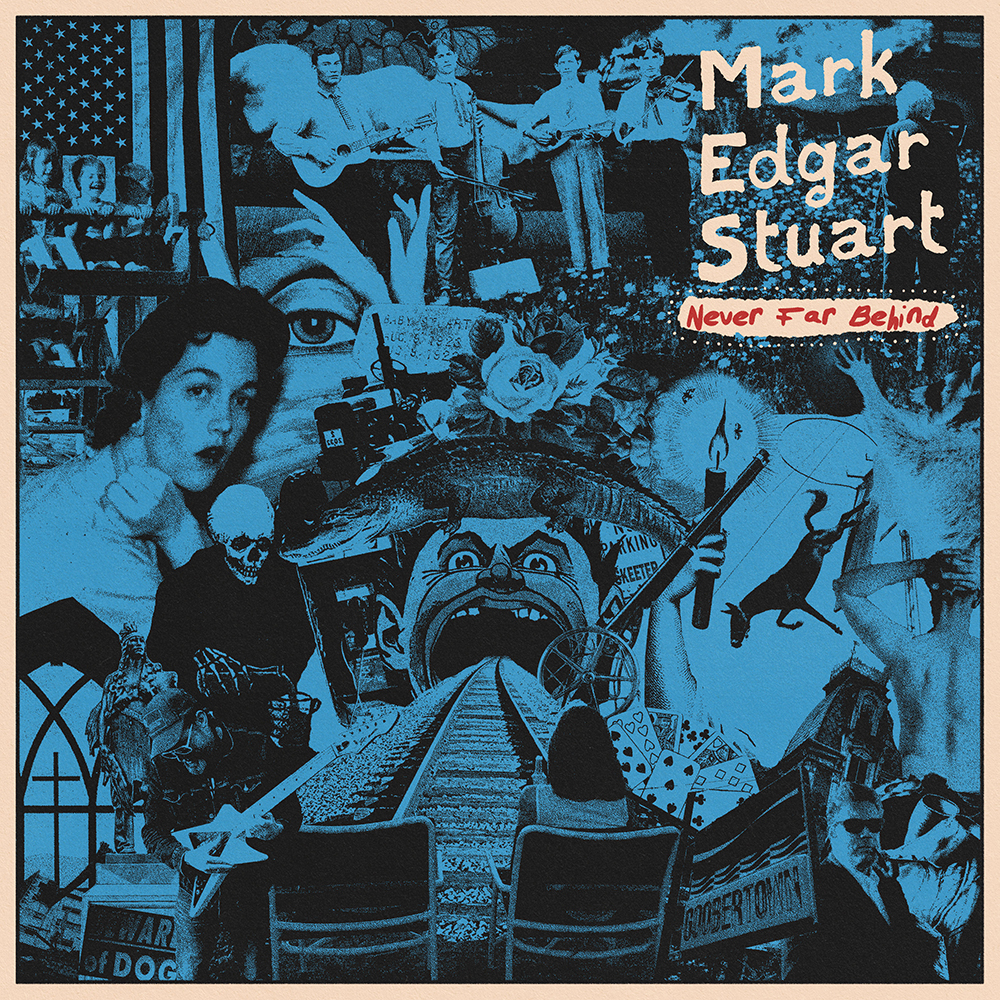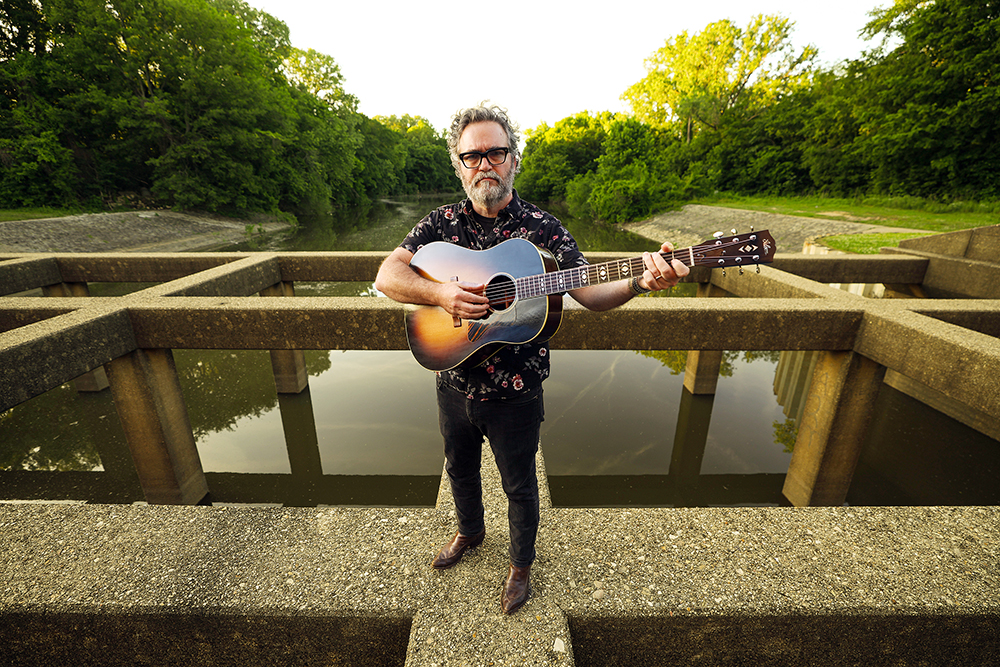Some artists ponder making albums, wondering if they have enough material, enough musicians, or enough money. But when you’re a player on the level of bassist Mark Edgar Stuart, always staying busy with one project or another and forever mingling with other musos at gigs and in studios, albums sometimes just fall together. One recording session here, another there, and eventually the whole thing snowballs.
That’s how Stuart’s latest release, Never Far Behind, came about, as the singer-songwriter himself admits. “I didn’t really mean to put out another record,” he says. “I thought I was done for a little bit. And then this record just sort of happened.”
Things like that tend to occur when you’re part of a crack studio band, as Stuart is — in this case at Bruce Watson’s Delta-Sonic Sound studio, where Stuart, as a member of the Sacred Soul Sound Section, plays bass behind artists like Elizabeth King on the Bible & Tire Recording Co. He can also be heard on secular Watson-related projects, some of which end up on Big Legal Mess Records. There’s always music cooking over at Delta-Sonic. And at times Stuart would show up only to find his own material on the menu.

“Over the past two years, my buddies and I would get in the studio — Will [Sexton] and Bruce and that whole crew. We just slowly recorded tracks,” Stuart says. “I kind of felt like the universe produced it, you know? Will was the official producer, but every session was just last minute. Will would say, ‘Hey, what are you doing tomorrow? Bruce is in town, I’m here, let’s record some songs!’ And I’m on the phone going, ‘Well, who’s going to be the band?’ So it was pretty much whoever was available at any given moment. Then three months would go by, and Will would go, ‘Hey, we’re in the studio now working on your record! What are you doing?’ I’d say, ‘Oh, shit, I guess I’d better get down there!’”
That approach made Never Far Behind one of Stuart’s most collaborative efforts, including songs he co-wrote with Sexton, Jed Zimmerman, and, perhaps most strikingly, Greg Cartwright. “That loose approach made for some cool combinations,” says Stuart, “like when we recorded a song that me and Greg wrote together [‘We Better Call It a Day’]. I was like, ‘Greg, you in town?’ ‘Yeah.’ ‘Come over!’ So he played guitar, and Amy [LaVere] played bass, and Krista [Wroten] played on it, and Shawn Zorn, and Will played the keyboards. In the studio, it wound up becoming a duet. It was just real loose and cool. Amy was going to sing backup, and all of a sudden she sang the first verse and it was like, ‘Fuck it, a duet it is! Keep rolling!’”
That track draws on the wit and musicality of Stuart and Cartwright, two of the city’s finest songwriters, to create a kind of Eastern European lament over a failed romance, made all the more haunting by LaVere’s and Stuart’s swapped vocal lines, wistful mandolin, and atmospheric, Tom Waits-esque percussion.
Yet another track, “The Ballad of Jerry Phillips,” grew from a would-be collaboration between Stuart and the song’s titular hero, son of Sun Records’ Sam Phillips. “I was hanging out with Jerry about a year and a half ago,” says Stuart, “and he said, ‘Man we’re gonna write a song together, and it’s gonna be called “Don’t Block Your Blessings.”’
“You know, we’re always blocking our blessings,” explains Stuart. “It’s like God’s trying to bless us, but we get in our own way. We fuck it up sometimes! Sometimes you’ve just got to let it be and just open yourself up to all the goodness. And Jerry and I were supposed to write that song together, but we couldn’t get anywhere with it. So I just turned around and wrote him a silly song about his own biography, and used the blocked blessings idea for the chorus. It came out perfect, you know?” The party atmosphere of the track, a Memphis cousin to “Rainy Day Women #12 & 35,” captures Phillips’ rock-and-roll spirit and epitomizes the loose recording style that shaped the entire album.
After many months of such hilarity, an album coalesced. As Stuart describes the process, “A year and a half later, Will was like, ‘Well, we’ve got 15 songs here. … Are you going to put a record out?’ And I was like, ‘I guess we should.’ It was really friendly, you know, and that was cool. I’m really happy with it, probably more so than anything I’ve done in a long time. Nothing against anything else I’ve done, but it’s just that cool! I think this could be it for a while. I think after this I’m just going to get into other things.” Could Stuart really mean it this time? We’ll believe it when we see it.
Hear Mark Edgar Stuart at the 8750’ Barbecue and Music Festival in New Mexico on August 16th; the Fishstock Music Series in Wisconsin on August 25th; Thacker Mountain Radio Hour in Oxford, Mississippi, on September 5th; the Memphis Songwriter Series at the Halloran Centre in Memphis on September 12th; and the Mempho Music Festival on October 4th.
